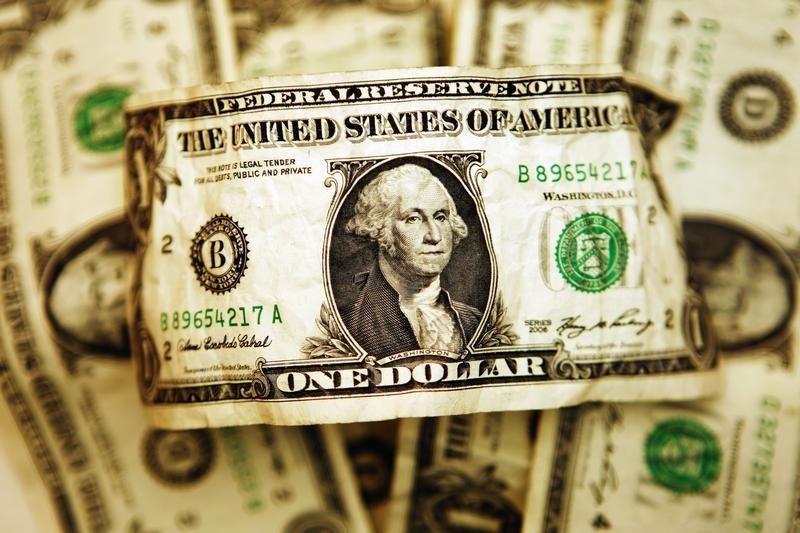By Peter Nurse
Investing.com - The dollar weakened in early European trade Thursday, slipping the day after the Federal Reserve confirmed it would accelerate the tapering of its bond-buying program and ahead of meetings by the European Central Bank and the Bank of England.
At 2:55 AM ET (0755 GMT), the Dollar Index, which tracks the greenback against a basket of six other currencies, fell 0.2% to 96.263, retreating from a high of 96.914 in the immediate aftermath of the Fed decision.
USD/JPY rose 0.1% to 114.17 and the risk-sensitive AUD/USD climbed 0.1% to 0.7176, benefiting from strong employment data even after Reserve Bank of Australia Governor Philip Lowe indicated that it was unlikely interest rates will need to rise next year.
The U.S. central bank announced on Wednesday that it was accelerating the tapering of its asset-buying program, aiming to end its pandemic-era bond purchases in March. This will pave the way for three quarter-percentage-point interest rate hikes by the end of 2022, a faster pace of monetary policy tightening than previously guided for.
The dollar initially soared on the announcement before quickly retreating, suggesting that markets were positioned for something even more hawkish.
U.S. producer prices rose a hefty 9.6% in the year through November, data showed earlier this week, and that release came hot on the heels of data last week showing consumer inflation running at a near-40% high.
Yet, despite the retreat by the dollar Thursday, “ risks are now clearly tilted towards an earlier start to the Fed’s hiking cycle than our current baseline of June,” said analysts at Nordea, in a note. “We see more room for the Fed to turn more hawkish next year, and expect more curve flattening and a lower EUR/USD.”
Attention now turns to the European Central Bank and the Bank of England, with both institutions holding policy-setting meetings later in the session.
EUR/USD rose 0.2% to 1.1303 and GBP/USD was largely flat at 1.3260.
The European Central Bank is expected to confirm that its bond-buying program will end as scheduled in March given the soaring inflation. However, the uncertainty caused by the growth of the Omicron coronavirus variant will likely mean the policymakers will want to assure that interest rate hikes are still some way off.
The Bank of England policymakers, on the other hand, have to decide whether to agree to the first interest rate increase since the pandemic began, weighing a surge in inflation against a surge in coronavirus infections.
Data released earlier in the week showed U.K. inflation jumped to 5.1% in November, more than double the central bank’s target, but Prime Minister Boris Johnson warned over the weekend that a “tidal wave” of Covid cases is coming.
Elsewhere, USD/TRY soared over 3% to 15.2225, climbing above the 15 level for the first time, ahead of the latest meeting of Turkey’s central bank as traders anticipated another rate cut despite inflation soaring above 21%.
The central bank has cut its key rate by 400 basis points to 15% since September as part of President Tayyip Erdogan's unorthodox economic plan program, and is again expected to cut its key rate by 100 basis points to 14% later in the session.
